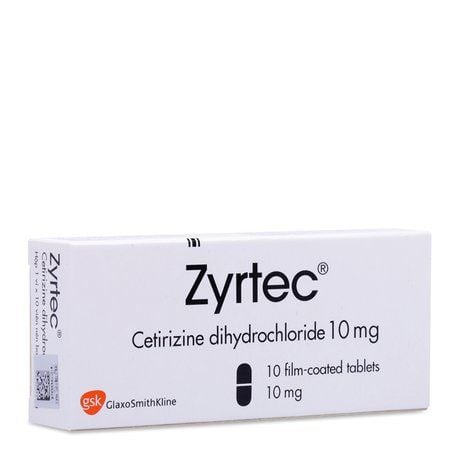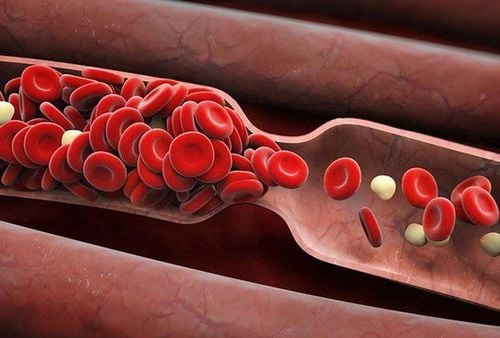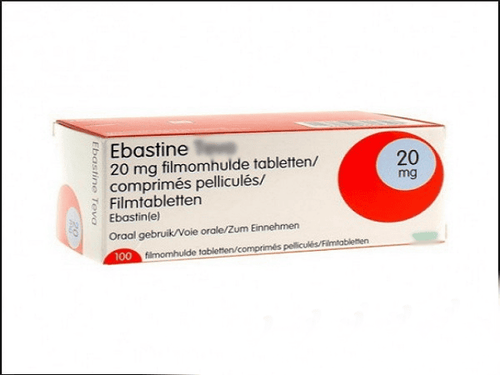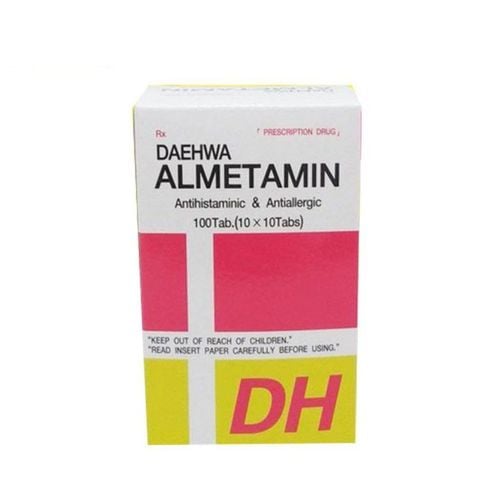In most cases, changes in the menstrual cycle are normal, as menstruation can begin earlier or later between cycles. However, if the menstrual cycle frequently changes, it may be due to several causes, including medication use. So, does taking allergy medication affect menstruation?
1. Does Taking Allergy Medication Affect Menstruation?
The most common allergy medications today are antihistamines. To answer the question of whether allergy medications affect menstruation, we need to explore the relationship between histamine and sex hormones. Antihistamine allergy medications (such as Benadryl, Claritin, Zyrtec) have not been shown to cause significant changes in the activity of sex hormones and are not related to changes in the menstrual cycle.
Under normal physiology, there is certainly a connection between histamine and some sex hormones (estrogen and progesterone) in the body. However, how antihistamine allergy medications affect these hormones and whether they cause menstrual irregularities is still not clearly understood. There does not seem to be any significant changes to the menstrual cycle, but some studies have explored the relationship between histamine, hormones, and the menstrual cycle.
According to normal body physiology, estrogen has the ability to stimulate the release of histamine from mast cells and reduce the amount of enzyme responsible for eliminating histamine from the body. Conversely, histamine can also stimulate the production of estradiol (a form of estrogen). Scientists agree that histamine is very important for normal ovulation, milk secretion, creating a suitable uterine environment for egg implantation, and regulating uterine contractions.

Although histamine is one of the important substances that affect many processes in the body, there is still a lack of evidence regarding the effects of antihistamine allergy medications on the menstrual cycle.
It is certain that this may happen based on what we know about histamine, but once again, the information is still incomplete. In clinical trials with various antihistamine medications, there have been few reports of specific side effects such as:
- Menstrual cramps;
- Breast pain;
- Menstrual irregularities, such as bleeding between periods.
Only one study investigate the effect of antihistamine allergy medications on menstruation found that the use of chlorpheniramine (a first-generation antihistamine) reduced the total amount of blood lost during menstruation. No reports were related to delayed menstruation or ovulation issues.
If patients do not exceed the recommended antihistamine dosage, these medications are unlikely to significantly affect the menstrual cycle. Whether exceeding the recommended dose or combining different types of antihistamines affects menstruation depends on the individual’s constitution, but there is no exact information on this.
If you are looking for alternative treatments for antihistamines for drug-resistant hives, talk to your treating physician. The antihistamine medications most commonly researched for treating rashes (urticaria) include:

- Xyzal;
- Zyrtec;
- Allegra;
- Hydroxyzine;
- Singulair;
- Xolair.
2. Other Medications That May Cause Menstrual Irregularities
2.1. Hormonal Birth Control Medications
Birth control pills or hormonal intrauterine devices (IUDs) typically make menstruation shorter and more regular. They are sometimes prescribed as a treatment for women with endometriosis—a condition that can cause heavy menstrual bleeding and very painful cramps.
However, if you are using progestin-only birth control pills, your cycle may be less regular in the early stages. Some women experience breakthrough bleeding between periods that may persist for several months after starting the medication. Some women also notice missed periods for a few months after stopping birth control.
2.2. Hormone Therapy
During perimenopause, hormone levels in women’s bodies change significantly, leading to unpredictable and often heavier menstrual cycles. Hormone therapy (estrogen, progesterone, or both) can help make cycles more regular, but it’s essential to talk to your doctor about the risks and benefits.

2.3. Warfarin (Coumadin)
Warfarin is a medication that helps prevent blood clots. The biggest concern with this medication is bleeding. If someone on this medication notices abnormal menstrual bleeding or bleeding between periods, they should immediately consult their doctor.
2.4. Aspirin and NSAIDs
Aspirin helps prevent blood clots, and doctors often prescribe it after a heart attack or stroke, which occurs when blood vessels are blocked by a clot. However, regular aspirin use can result in heavier or longer menstrual bleeding. Nonsteroidal anti-inflammatory drugs (NSAIDs), such as ibuprofen and naproxen, have the opposite effect and can make periods lighter.
2.5. Thyroid Medications
The thyroid is a gland that produces several hormones. When it does not produce enough of these hormones, the condition is called hypothyroidism, which can lead to menstrual irregularities. One medication used to treat hypothyroidism is levothyroxine (Levoxyl, Synthroid), which helps replace the normal hormones produced by the thyroid, but it can also cause changes in a woman’s menstrual cycle.

2.6. Antidepressants
Researchers have found that some women who take antidepressants frequently experience menstrual irregularities, such as painful cramps, heavy bleeding, or delayed periods due to side effects. Menstrual abnormalities are more likely to persist during the first three months after starting the medication, but it’s crucial to consult with a doctor if the menstrual cycle does not return to normal afterward.
2.7. Antiepileptic Drugs
Studies on women with epilepsy taking antiepileptic drugs have shown that many women frequently experience delayed periods, menstrual irregularities, or changes in cycle length.
2.8. Chemotherapy
Chemotherapy treatment for cancer can cause menstrual cycles to become irregular, with menstruation either becoming heavier than usual or even stopping entirely. If the patient is under 40 years old, the cycle may start again after chemotherapy treatment ends.
If patients do not exceed the recommended dosage of antihistamines, most allergy medications are unlikely to have a significant impact on the menstrual cycle. In addition to allergy medications, some of the drugs mentioned above can also affect menstrual cycles. Therefore, to ensure health, patients should have regular health check-ups and follow their doctor's medication instructions.
To arrange an appointment, please call … or make your reservation directly HERE. You may also download the MyVinmec app to schedule appointments faster and manage your reservations more conveniently.
References: webmd.com, walrus.com













